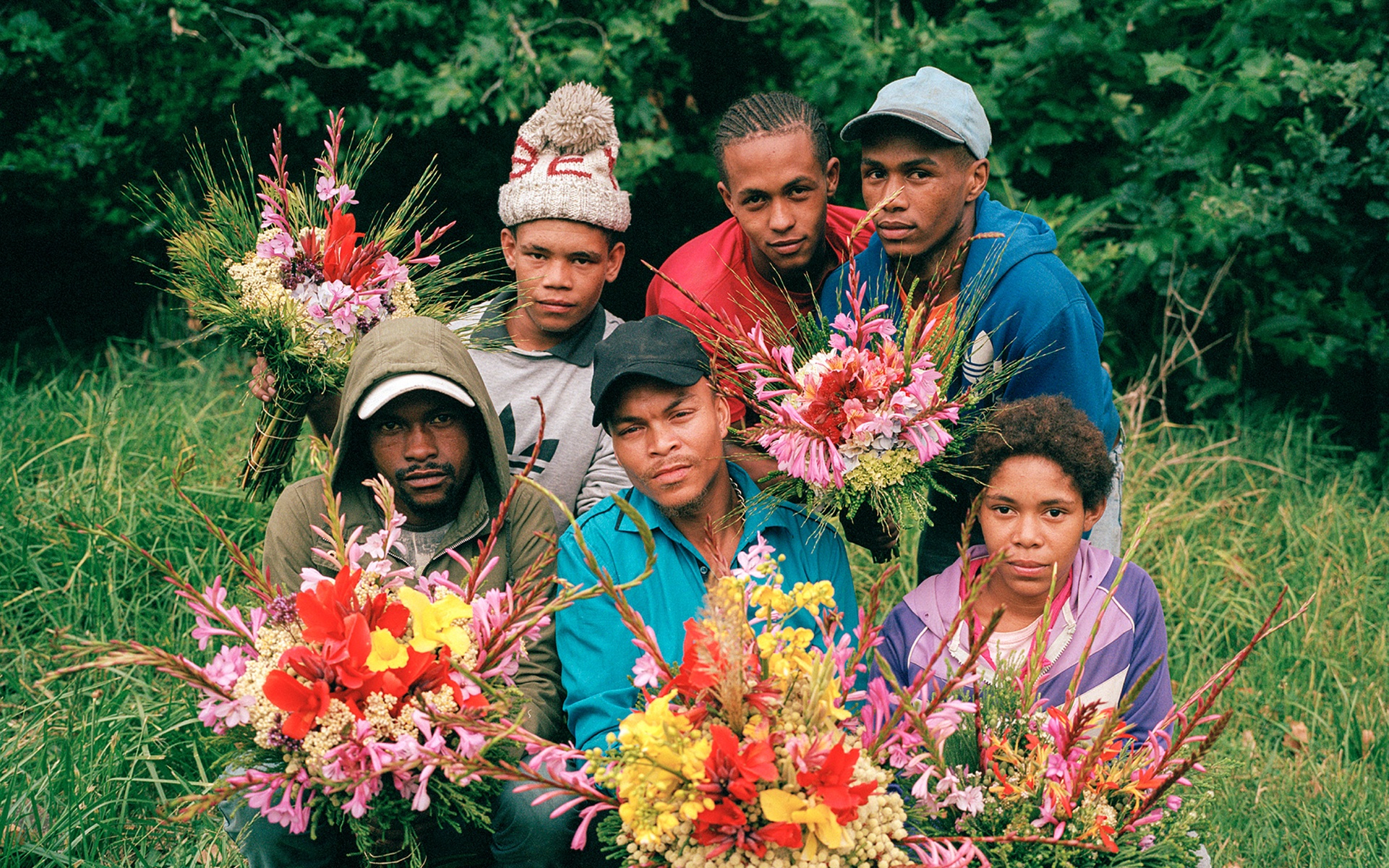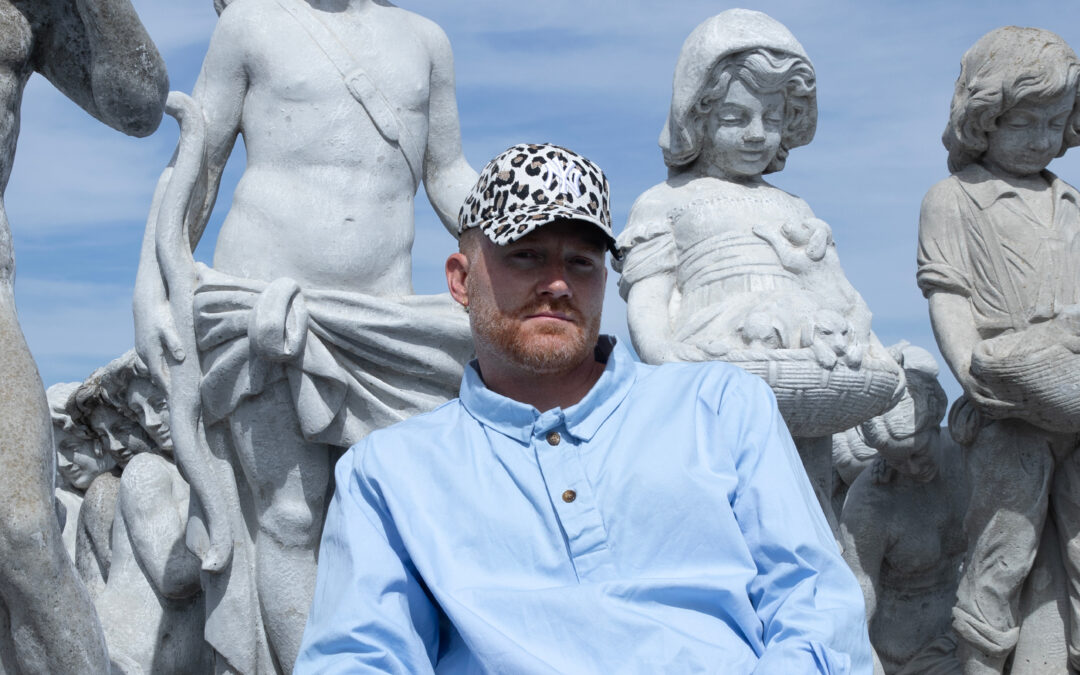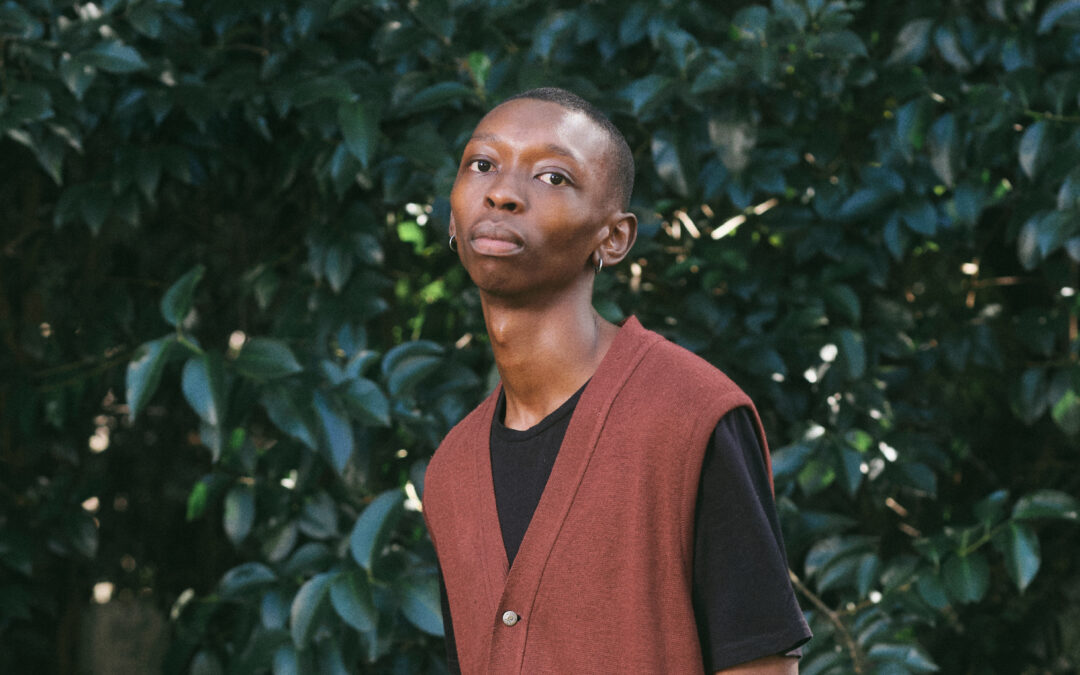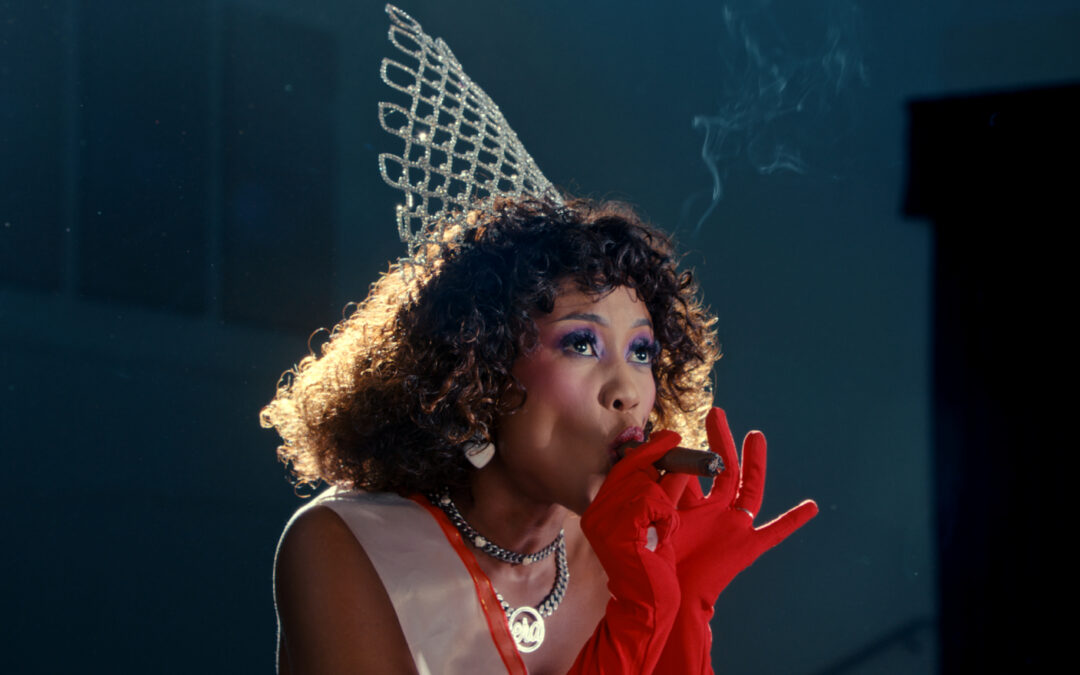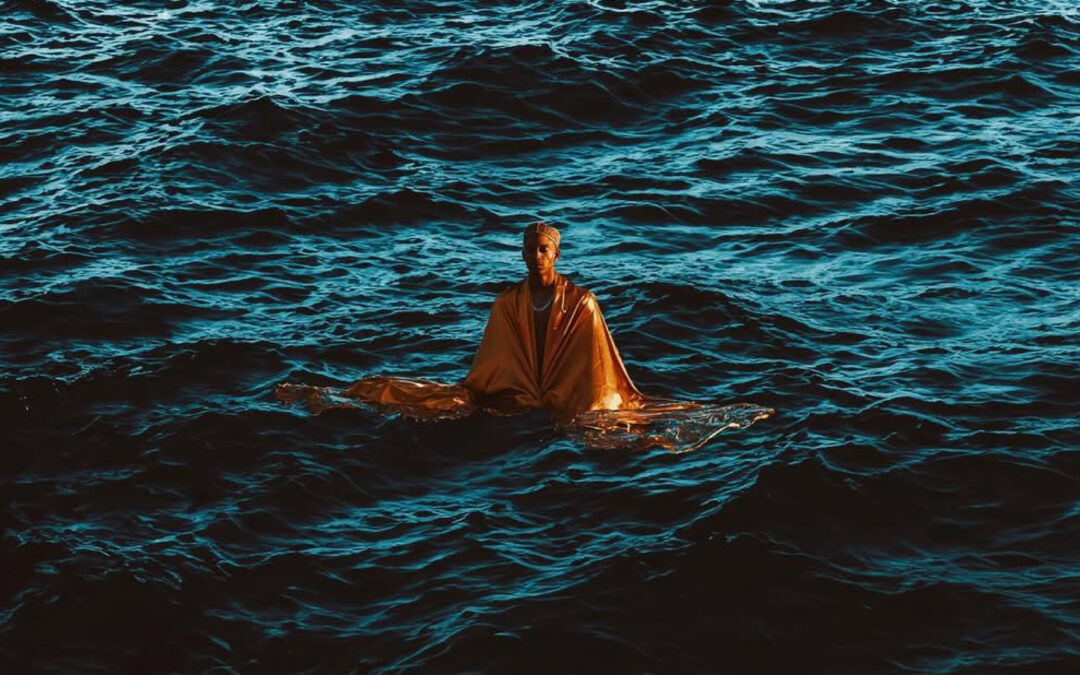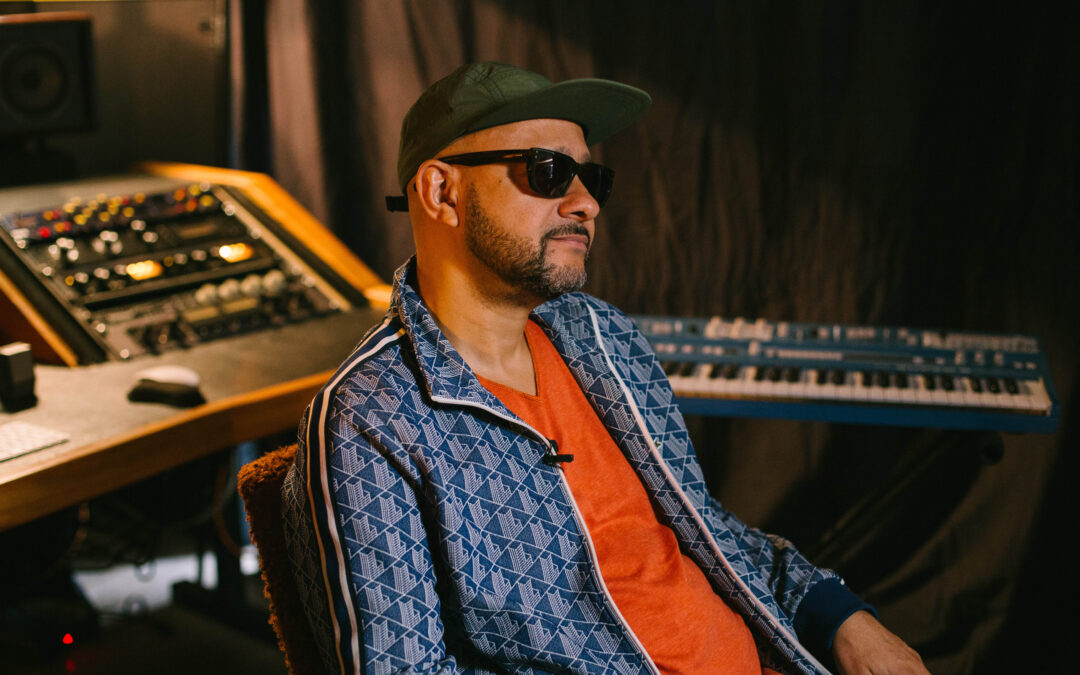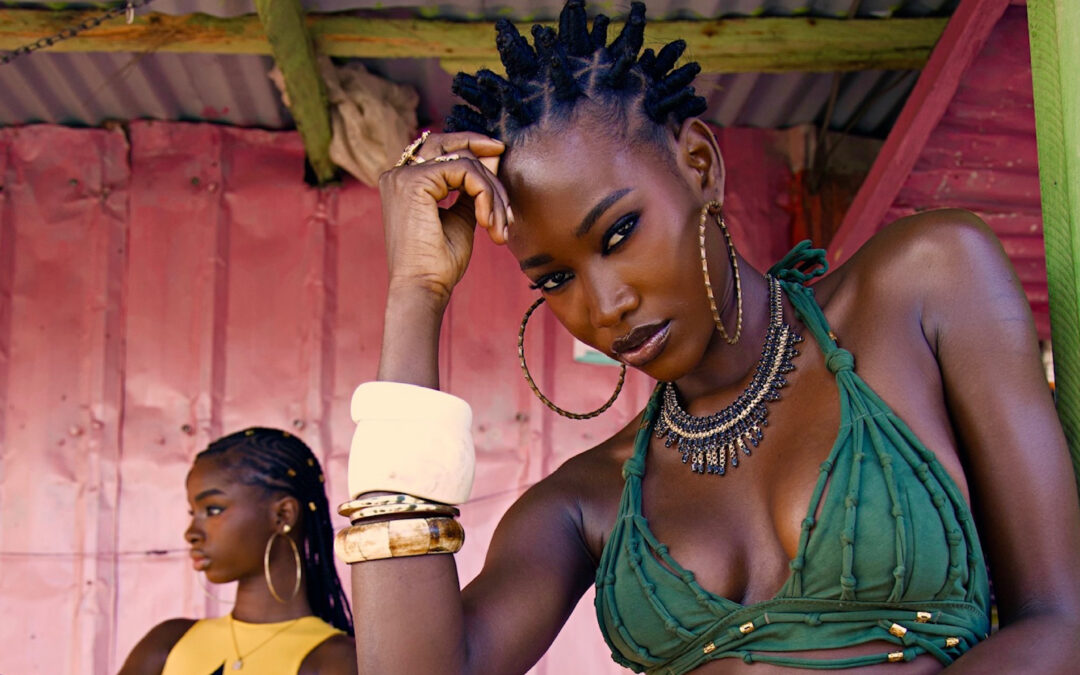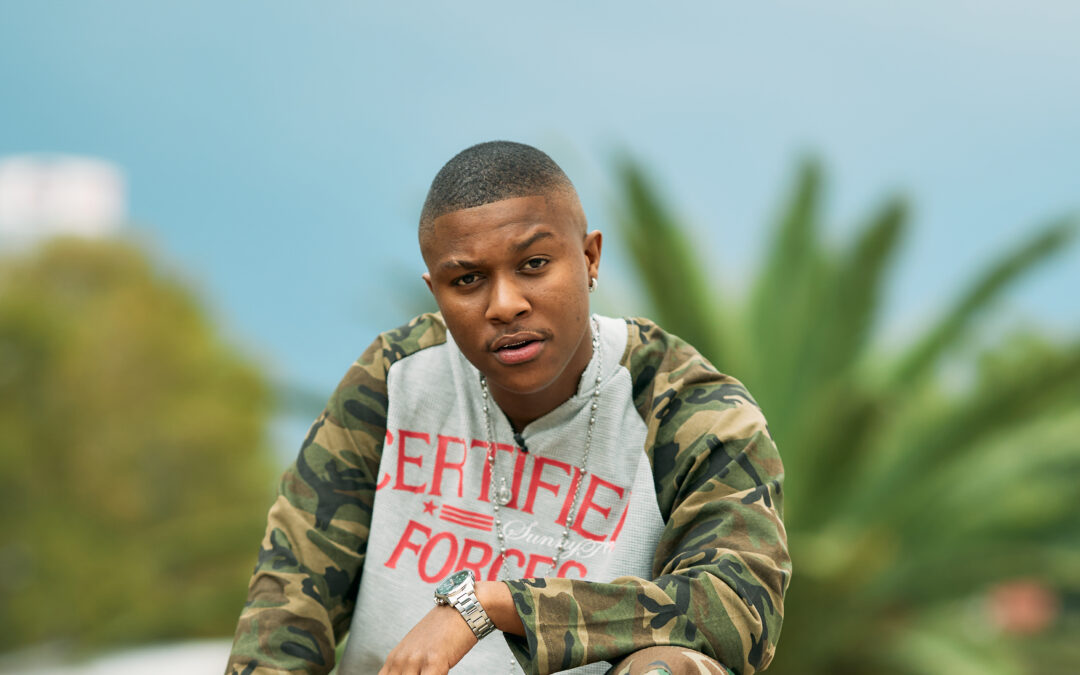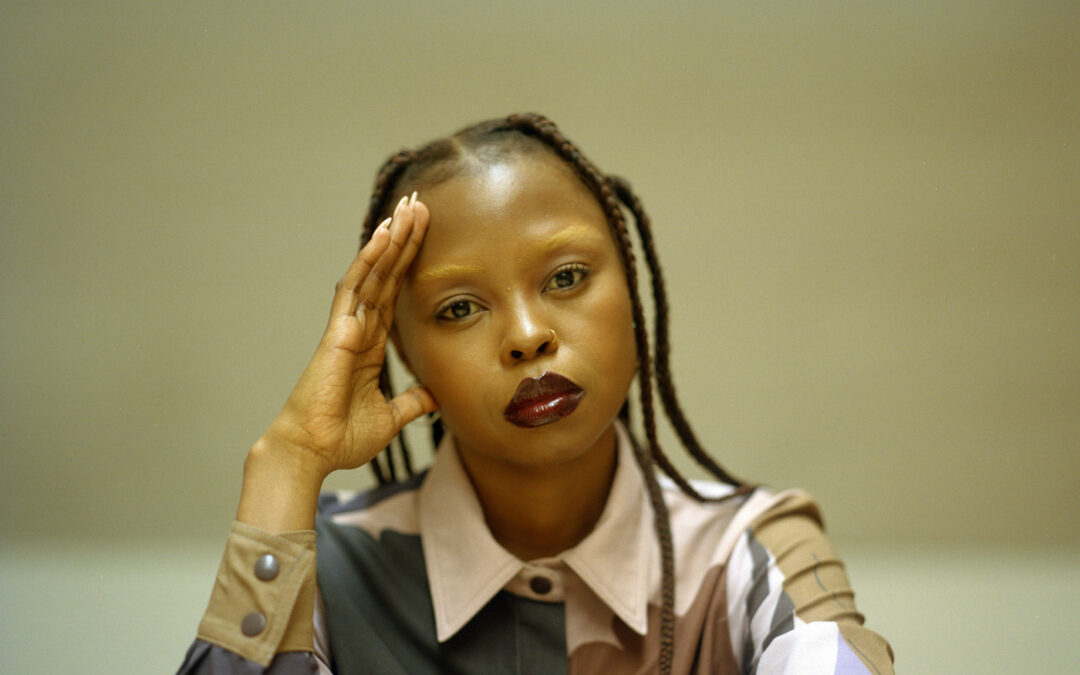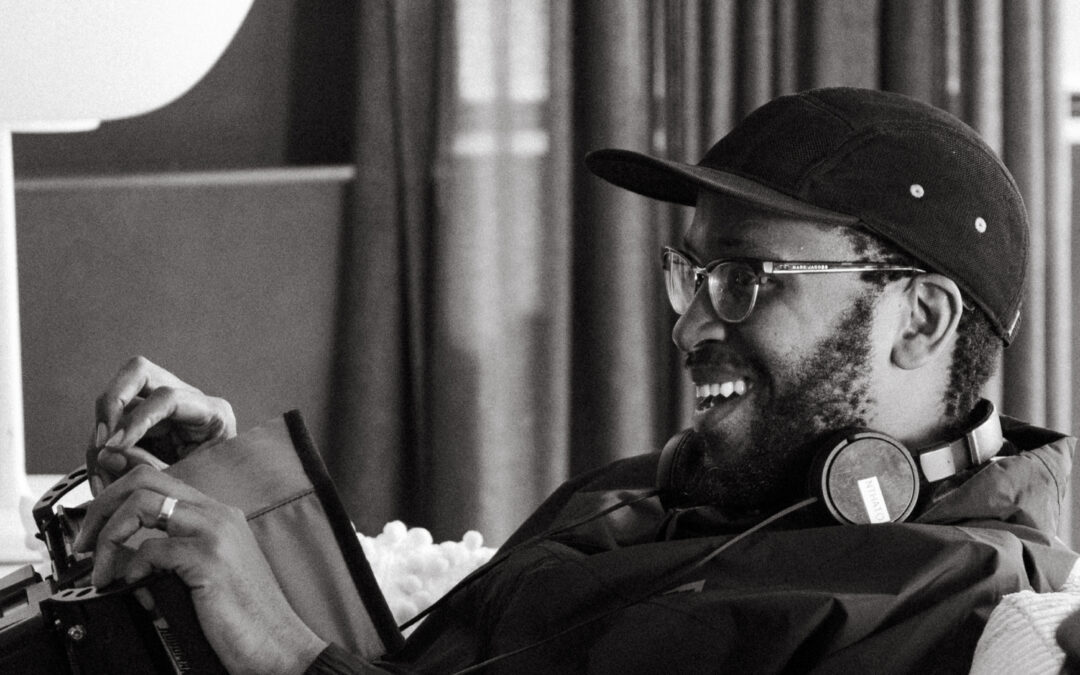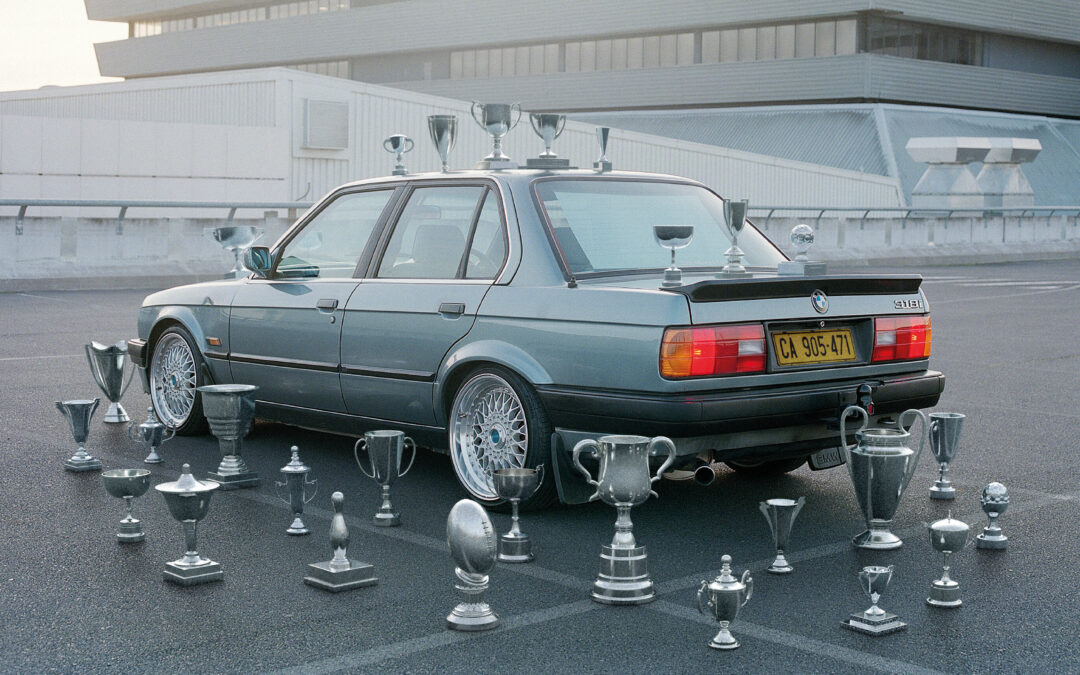It is the midst of our conversation, and Luca holds up a book to the screen; it’s titled ‘No Straight Road Gets You There: Tales for Uneven Terrain’, by Rebecca Solnit. Luca exclaims that “the author writes about contemporary issues without resigning to hopelessness. It’s refreshing. I read an essay in the morning — okay gang, we can do this. Realistic, intersectional, yet hopeful. A balm for the soul.” The book details, across its fragmented essays, the way in which hope can coexist with grief; how one might continue to move forward without denying the darkness of the time we live in.
I wasn’t expecting our conversation to err towards the existential, but I suppose it’s inevitable when speaking with an artist whose practice is entirely rooted in a bodhisattva-style commitment to presence. Luca Vincenzo’s insistence on sincerity — on meeting life without the hardened armour of jadedness — sits at the core of his worldview, and by consequence, his work. It’s an ethos that asks him to continually strip away: the layers of jargon, pretence, intellectualisation, and distraction, until only what is essential remains. What’s left is something disarmingly pure; Luca’s way, is a way of seeing that recognises beauty as enough. His image and filmmaking are entirely the result of this disposition.
On his creative beginnings, Luca explains that when he was a child, his mother would send him and his sister to art classes over the long summer holidays; mostly to keep them out of trouble. “My sister was always considered the creative one, and I really internalised that,” he says. “I didn’t think I had anything particularly ‘artistic’ in me. I did, however, love theatre in high school; being on stage brought me a lot of joy.” It wasn’t until years later that it dawned on Luca that the creative, animating principle he recognised in others was inborn in him too, reminiscing that, “some friends were photographers and I started tagging along, art-directing little shoots for bands I was involved with. Eventually I picked up a camera, shot a roll of film, and when the pictures came back I had quite a shock — ‘wait, I made that?’ That was a surprise that opened a door: maybe I could be creative too? I discovered it, and what a gift.”
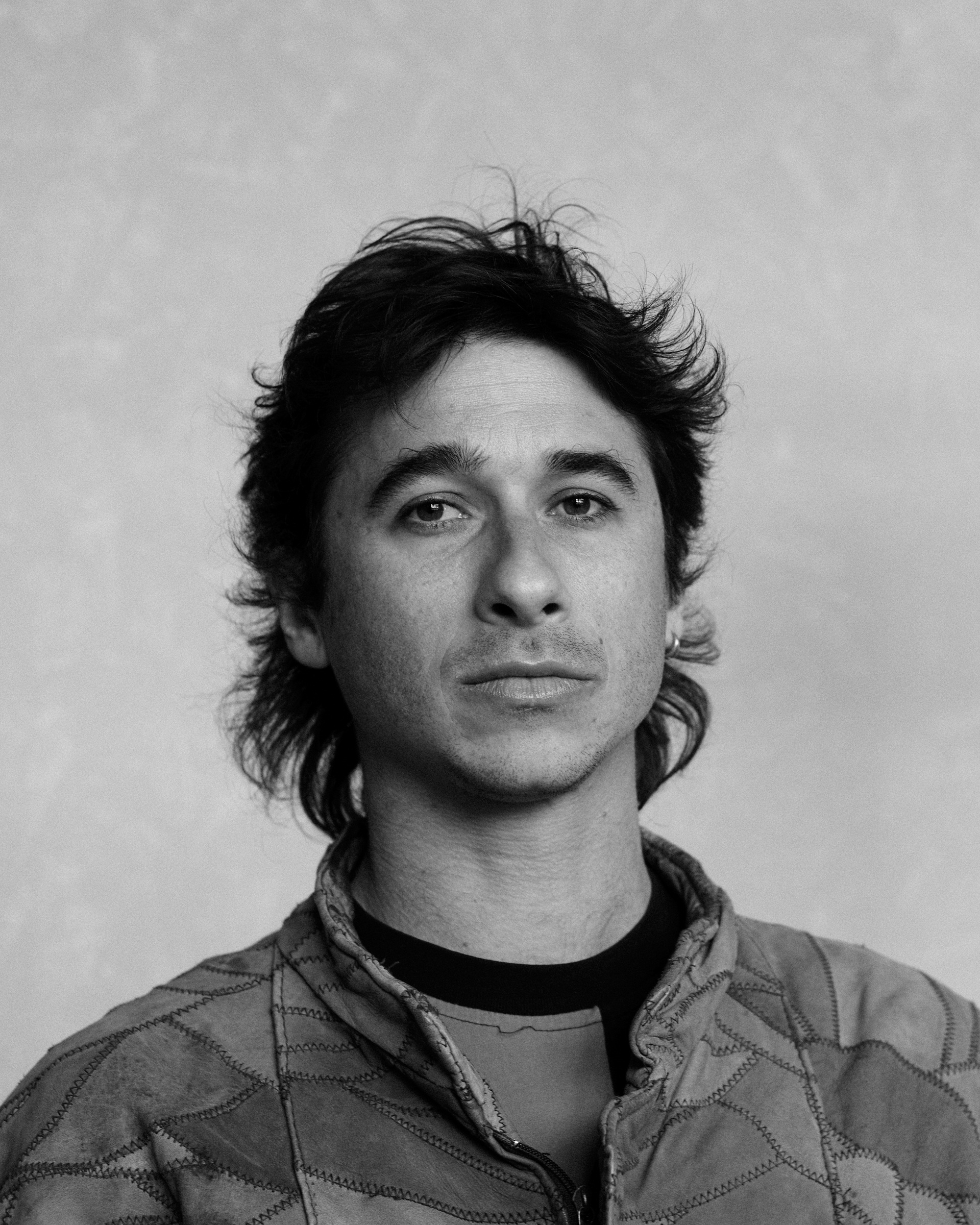
All imagery courtesy of Luca Vincenzo
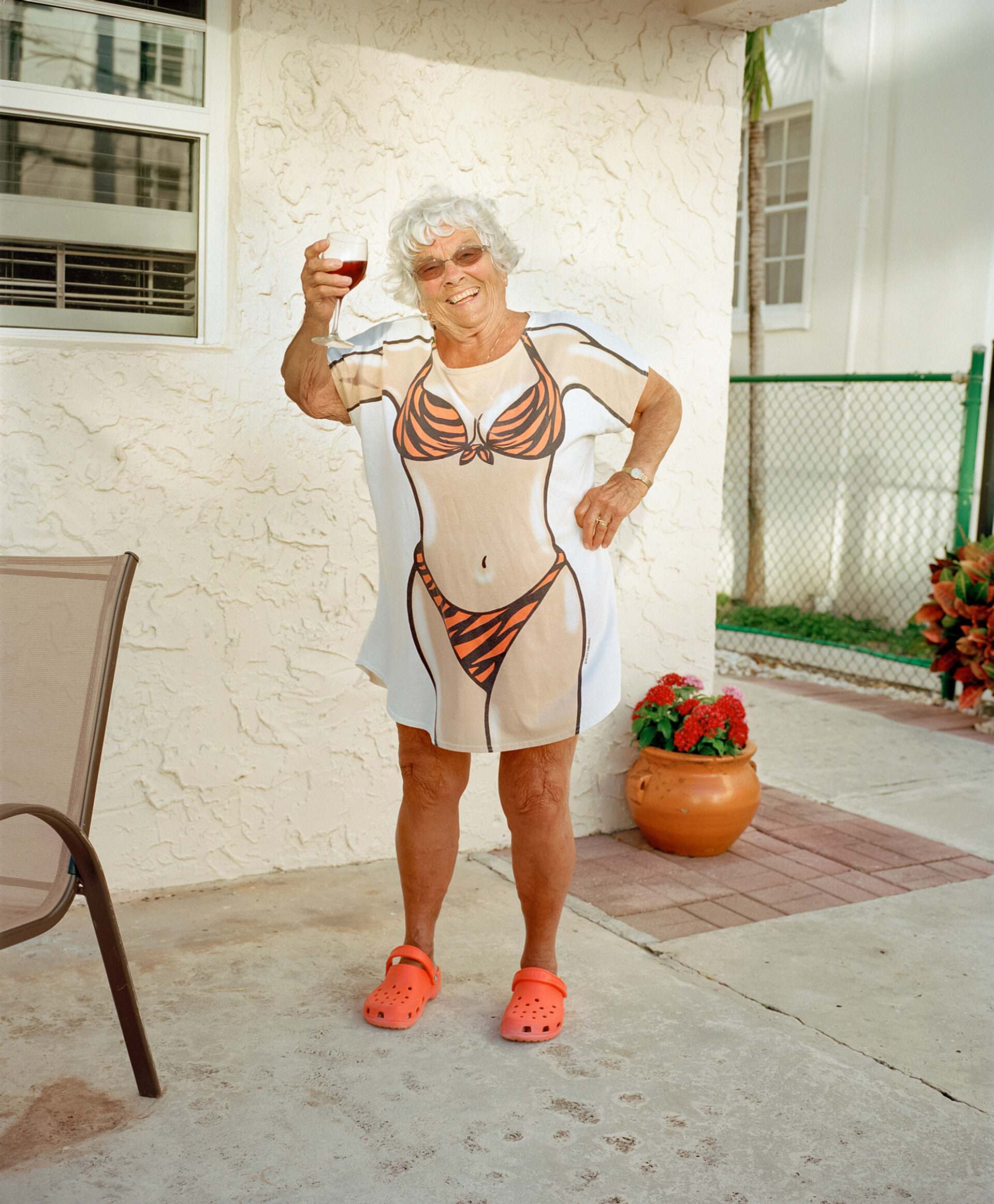
Luca’s image-making is some of the most enriching and honest that I have seen. If photography is a contemporary invention driven by the instinct of human beings to use light to capture ourselves in time — and, in some ways, to escape it — then Luca’s portrayals of people and scenes are acts of witnessing those throes of time as close to the bone, as possible.
This is image-making that traces the essence of the subject beyond their surface; documenting something essential to Luca’s practice — an innate ability to draw out the sheer importance of the moment he is capturing. Whether it’s flower sellers on the N2, faithful women descending from the Hawequas Mountains, or a stark portrait of someone gleaming with the wrinkles only a life well-lived could shape, Luca’s framing of them, and of the moment itself, carries the energetic conviction that it matters. That moment mattered, and their lives in the world matter — not because Luca is insisting that they do, nor because the image demands it, but simply because they are there. Their existence, unadorned, is enough.
Is there a more honest purpose for photography?
“I’m drawn to portraiture in an existential way rather than an academic one,” Luca says, explaining that his approach is more an intervention into a moment in time, than anything else; “the portrait is a residue of the real thing I’m seeking — a brief, human moment with a stranger. Cities are rivers of inner worlds; everyone is the centre of their own universe, all that complexity walking past you. To interrupt that flow gently — ‘Excuse me, may I make your portrait?’ — and to be welcomed… it’s intimate.”
What Luca describes, in essence, is his version of social alchemy; a micro-communion between strangers that reaffirms his faith in the world. It seems simple (which it is), but the sheer ability to interject in someone’s life, at a time when the physical and digital are so mediated, and it feels as though we all exist worlds apart from one another, is profound.“I wouldn’t call it community in the formal sense,” he reflects, “but there are these tiny fibres of connection that get spun in a few seconds. You’re altering the programming of someone’s day, and they’re altering yours. That feels quietly sublime to me.” The unguarded exchanges, devoid of any pretence, is what anchors Luca’s work, and it’s this sensitivity toward engagement which exists as a creative principle across all his work; the personal and commercial, alike. “My process is to not overthink. I go out when something in me feels hungry for contact. On days when a walk doesn’t solve the mind, approaching people often does — I come home feeling like the world is alright again. People are actually kinder than we might fear,” Luca muses.
The tension between performance and community is an undercurrent in Luca’s process. Aside from his commercial work — which, though shaped by his sensitivity, is inevitably curated — so, Luca is drawn to the unpredictability of the street. “In Berlin there’s a reputation for standoffishness compared with South Africa, and yes, sometimes the first look is a scowl. The craft is in those first two or three seconds: disarm the person, let them feel they can trust you, that you have no angle. A sincere compliment helps — ‘Your hair looks wonderful; may I make your portrait?’ You can almost watch the fence dissolve; someone feels seen.”
That instinct to connect, to perform without artifice, sometimes reveals itself in unexpected ways, most notable as in a story that Luca shares, in which “after years of shooting you can still make a spectacularly dumb mistake. I spent two days on the street, met fascinating people, watched the frame counter tick past 36 and thought, ‘why hasn’t it asked me to rewind?’ The spool hadn’t caught the film.” He laughs at the memory, describing it as “cosplaying as a photographer.” The irony, Luca says, was that “the performance was real — the approach, the exchange, the permission, the little moment we built together — but there was nothing to show for it. Oddly, I loved the lesson. It reminded me that the encounter is the point, and the picture is only one way of honouring it.”
I think of the categorisation we try so hard to impose; the endless naming, positioning, defining, and while it’s not to say that Luca is uninvolved in these frameworks, there is a measure of distance between him and the machinery of self-making; Luca seems disengaged with the common pursuit of one’s art as a means to become someone, rather than as a mode of being someone already. Most crucially, oneself. His work is driven by a wish to be in relationship with the world. “I never studied art or photography, so I’m not fluent in the jargon,” Luca says. “I respond to nature, colour, people in their spaces; I like watching how life arranges itself. That description wouldn’t pass muster on a gallery wall, but baroque language about a leaf on the ground doesn’t move me either.” Of this idea — that verbosity and scripting on gallery walls serves as a kind of justification for the legitimacy of one’s work — Luca is especially resistant. “I used to worry that simply presenting beauty wasn’t ‘enough’. Now I think it is. The life in me is the life in you and in everything; the photograph is life showing itself to other life. That’s not an idea I need to over-justify — it’s something I recognise when I see it.”
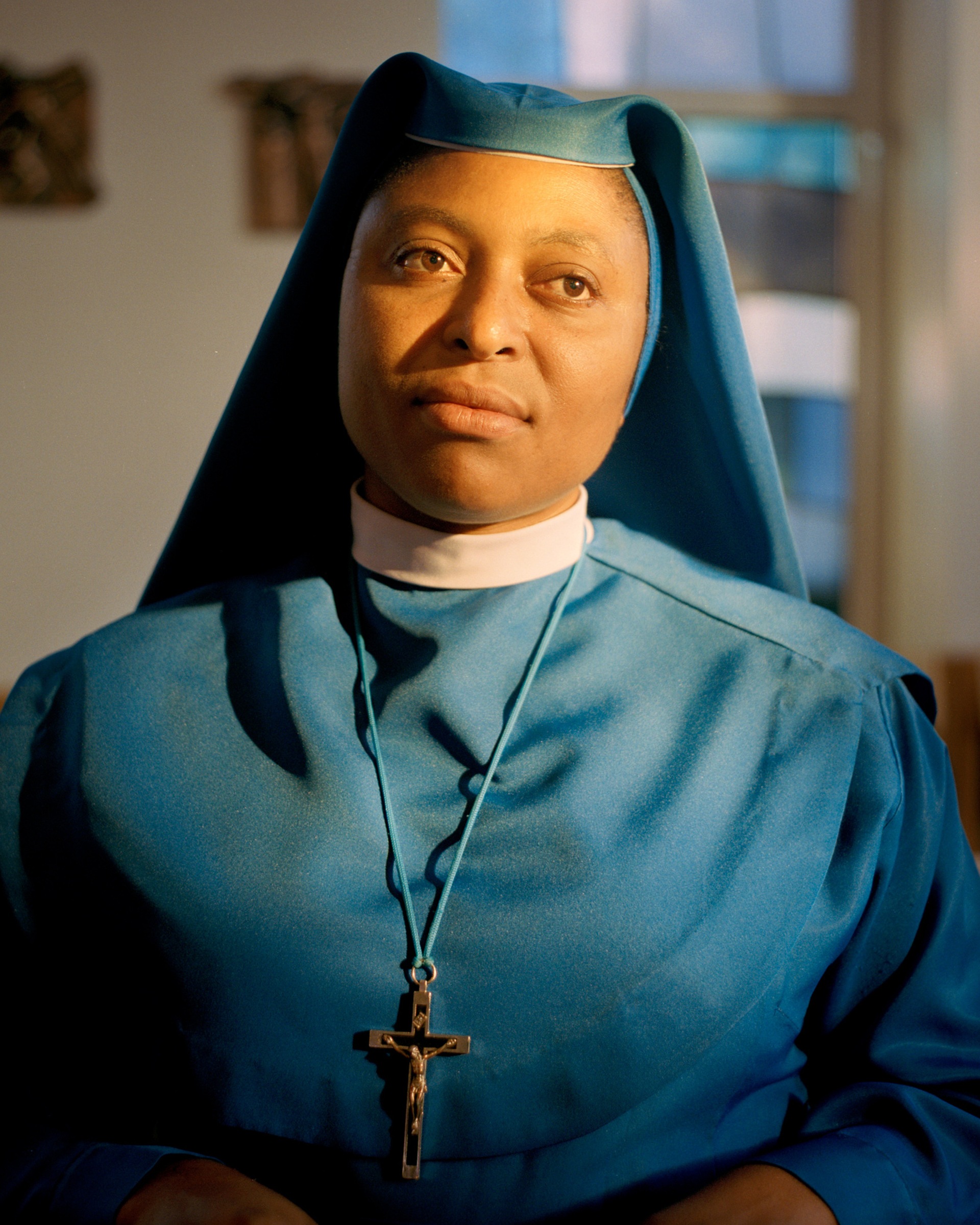
All imagery courtesy of Luca Vincenzo
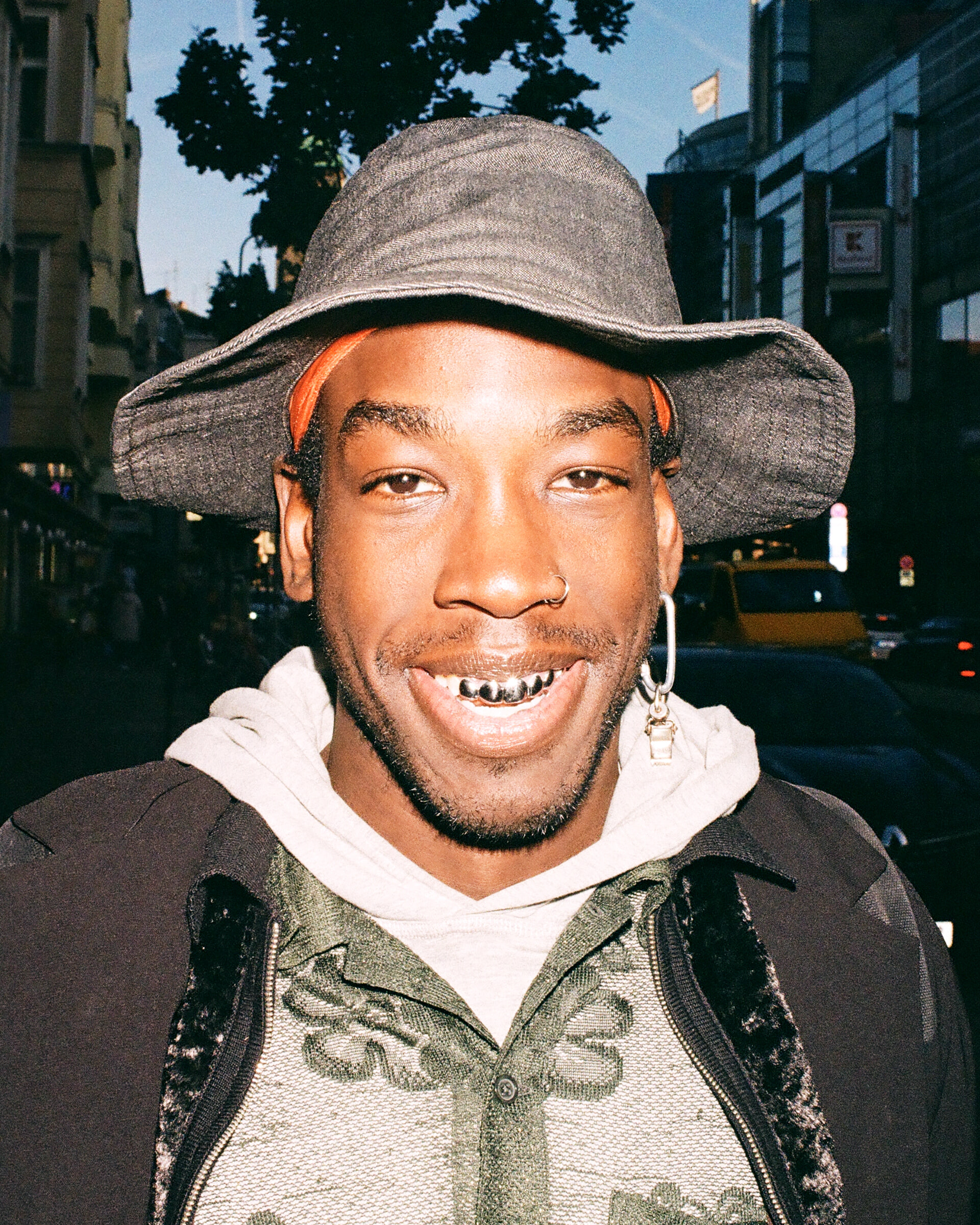
Luca is South African-Italian, living between Berlin and Cape Town, a rhythm he describes with both affection and unease. “I live between Cape Town and Berlin and I’m forever questioning the arrangement. I miss home — the people, the nature, and the version of myself that exists in South Africa. At the same time, moving between places has given me perspectives I’m grateful for. It keeps me awake to who I am and who I might be.”
It has been a threshold year, Luca shares. There is a forthcoming inclusion in a Penguin group photobook with Italia Segreta reflecting this multiplicity of belonging, of which Luca “is representing Puglia, where my grandmother is from and where I’ve been photographing for five years. I didn’t chase the iconic locations; I went to the ordinary places she remembered — her inland town, a modest local beach. Year after year I’d return and see the same groups of friends with grapes and leftover pasta, watching the sun go down.” As a child of the diaspora, Luca’s inclusion demonstrates the borderless nature of heritage, and how it lives in the repetition of return and commitment, over any kind of geographical boundary.
When I ask Luca whether he feels any particular responsibility in his role as a photographer, he answers without hesitation. “I struggle to imagine my ‘role’ as anything grander than trying to live well and be decent. One of the purest thrills is when someone outside the art world stops at an image and says, ‘That’s beautiful.’” I mention that we live in a time when one’s art is often treated as a personal brand, to which Luca immediately recoils. “The pressure to be a brand unto yourself feels awful to me. If I have a motto, it’s embarrassingly simple: try not to be a brand! That clarity is one gift of getting older — you start stripping away the messaging and ask, ‘who am I without all that?’” Luca recalls a lesson from a production designer that has since stayed with him: “Perfect isn’t when there’s nothing left to add; it’s when there’s nothing left to take away. I think about that in pictures and in life. The work now is subtraction — removing what’s not essential so that it can breathe.”
What next, for Luca? “I’m still making street portraits — and yes, the last roll actually loaded,” he laughs. “I’ve also launched gathered.studio to cover weddings, elopements and nuptials on 8mm and 16mm film. Honestly, it brings me more fulfilment than making a brand happy. You’re using your craft to honour love and to give families something to keep.”
Beyond that, Luca’s gaze is turning toward movement, “I’m moving further into short filmmaking,” he says, “ I want to create small, honest vignettes following people whose worlds intrigue me: I have a friend who is a a scientist who communicates about living with the forest; and another friend who gathers from the mountains and makes tinctures. Photographs can be beautiful little liars; film, at its best, lets a fuller truth breathe.”
Lastly, Luca’s final manifesto for a life of presence is to “notice what you’re using to distract yourself and set it down. Return to yourself, to your people, to nature — and to your relationships with all three. There is no isolated ‘I’; there is a ‘we’. Keep imagining an ideal future and, in small ways, try to live as if it’s already arriving.” It’s an apt, concluding reflection of the spirit that runs through all Luca and his work; and a reminder that I needed, that our attention and sincerity are among the most precious offerings we have for the world.
So, dear readers, hold them close, and use them wisely.
Written by Holly Beaton
For more news, visit the Connect Everything Collective homepage www.ceconline.co.za

